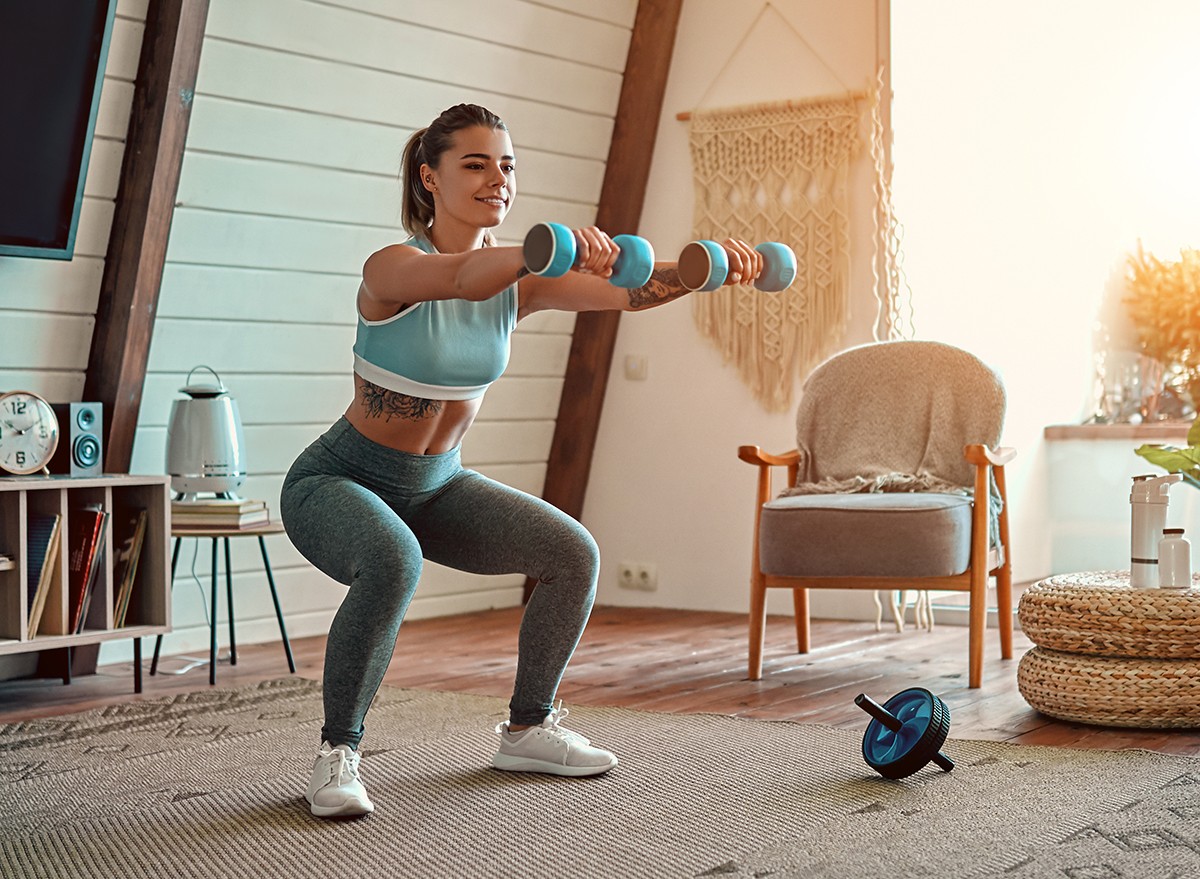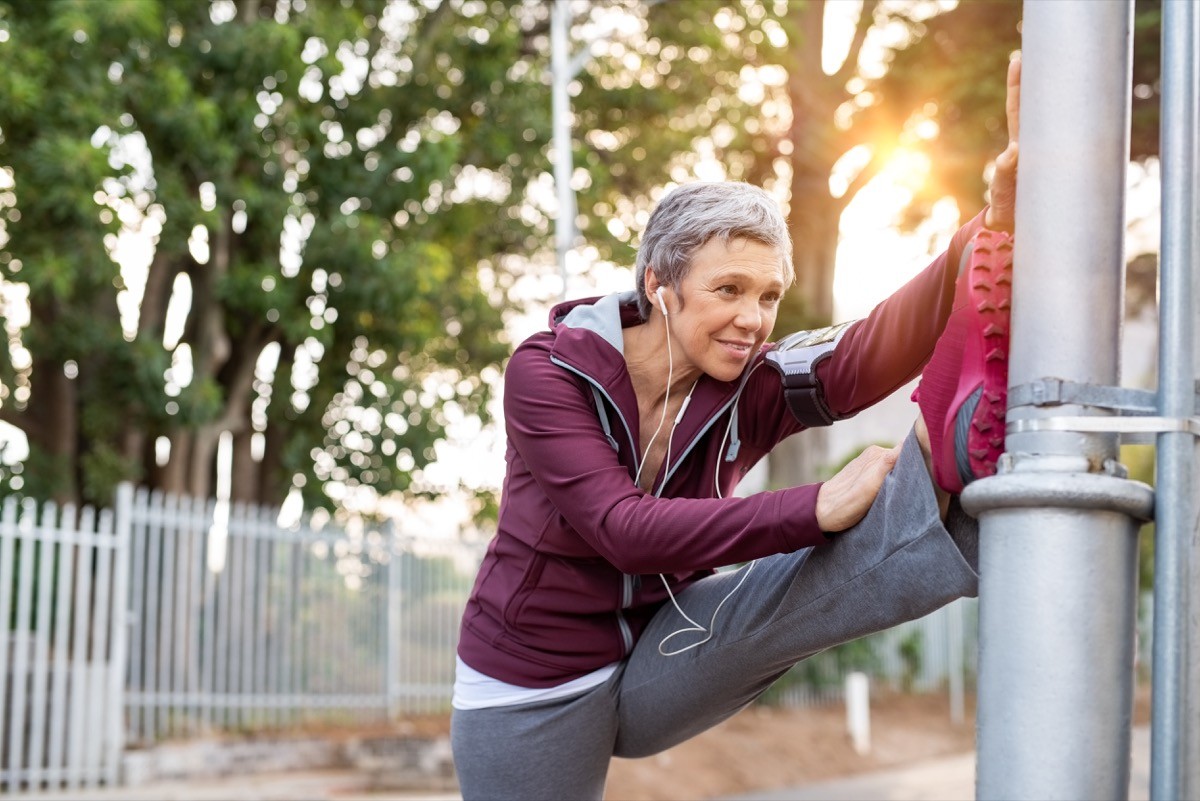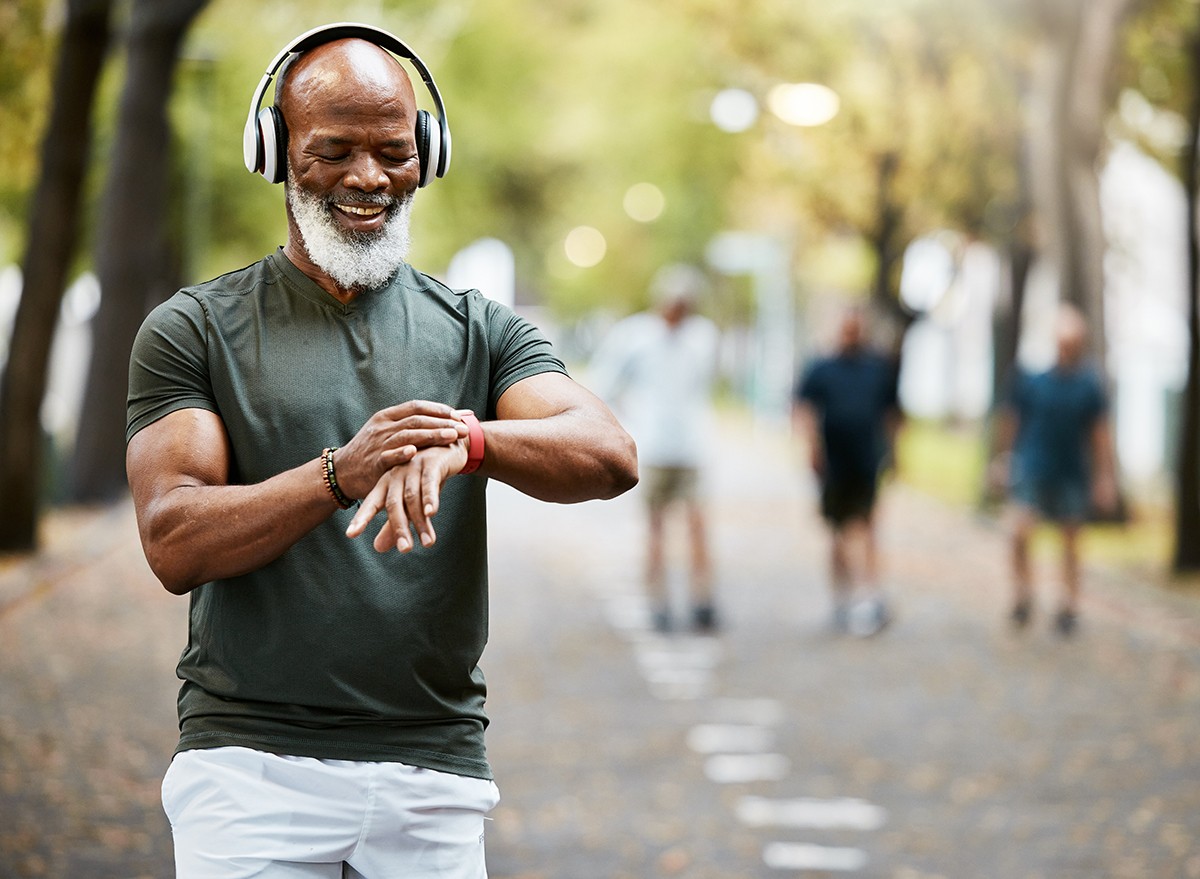Experts Reveal the One Habit That Can Add 10 Years to Your Life

We know how important exercise is for health and wellness, both physical and mental—but it’s also crucial for longevity. A new study published in the British Journal of Sports Medicine shows regular exercise can add 5-11 years to your life. “I was surprised to find that the loss of life years in the USA due to low levels of physical activity might rival the losses due to smoking and high blood pressure,” senior study author Dr. Lennert Veerman, professor of public health in the School of Medicine and Dentistry at Griffith University in Australia, told CNN. This research reiterates past studies about the impact exercise has on lifespan and healthspan—here’s what the experts say.
RELATED: Top 5 Exercises to Improve Your Flexibility.
Working Out for Longevity

Regular exercise, both aerobic and strength training, is important for longevity and health. “Unless there is a clear medical contraindication, we should all strive to achieve and maintain high levels of fitness,” says Marwa A. Ahmed, MD, MS, via Harvard Health. “Current guidelines recommend 150 to 300 minutes per week of moderate aerobic activity (walking, running, swimming, biking), or 75 minutes of vigorous activity, or a mix of both. Twice-weekly resistance training to strengthen muscles is also recommended. Unfortunately, only about one in five adults and teens gets enough exercise to maintain good health.”
Daily Movement Is Key

Aside from getting regular exercise, it’s important to stay active throughout the day. Make so that regular movement is a natural part of your lifestyle, experts say. “People in blue zones, they’re not thinking about their health or a diet or an exercise program. They’re not doing anything except living their lives,” blue zones expert Dan Buettner told NPR. “Plant a garden in your backyard. A garden nudges you to weed and water and harvest almost every day.
Exercise and Healthspan

When scientists discuss “healthspan”, the emphasis is on how healthy a person is during those extra years of life. “Why do we care about healthspan?” says Tim Peterson, PhD, assistant professor in the Department of Medicine at Washington University in St. Louis, via Harvey A. Friedman Center for Aging. “Caring about extending the well period of one’s life should be intuitive – if one is past their healthspan, it means they are chronically sick, often with a degenerating condition. Therefore, most people would agree that staying within their healthspan is desirable.”
Exercise and Disease Prevention

Disease prevention is key for your healthspan. The temporary physiological stress of exercise tiggers repair mechanisms which fight inflammation and support heart health. Without exercise, we can’t turn on those mechanisms. “Because as humans evolved, they were never habitually inactive — there was no way they’d survive just sitting around doing nothing day after day,” says paleoanthropologist Daniel E. Lieberman, professor of human evolutionary biology at Harvard University. “But those mechanisms are what extends your health span, and that’s why we evolved to be active as we age. Physical activity is both the cause and effect of a lengthy life span.”
RELATED: You Only Need 30 Minutes of Exercise to “Strip Fat”.
Any Is Better Than None

Start slow and build up to a good routine, experts advice. “Even small amounts of physical activity can help,” says the Mayo Clinic. “Being active for short periods during the day can add up to health benefits. For example, try walking briskly for about 30 minutes most days of the week. You can even break up physical activity into short chunks of time spread throughout the day. Any activity is better than none.”
Make Exercise Fun

It’s normal to struggle with motivation when it comes to working out, which is why it’s important to make it enjoyable. “In today’s world, we can make physical activity necessary in our own lives by making it rewarding, and the best way to do that is to make it a social event,” Lieberman says, adding that he likes to go on long runs with Harvard colleague Dr. Aaron Baggish. “We text each other in the evening to make a plan. It doesn’t always feel like a great idea early the next morning, but because I know Aaron’s going to be waiting for me on the corner at 6 a.m., it gets me out of bed.”
It’s Never Too Late To Start

“It’s never too late to adopt a healthy lifestyle,” James Hill, PhD, chair of the UAB Department of Nutrition Sciences, tells UAB News. “Often people who have not had healthy habits can start by making a few small changes in how much they move and what they eat. This will often lead to more changes. No matter how old you are or how bad your lifestyle habits are, you can benefit from making better lifestyle choices.”